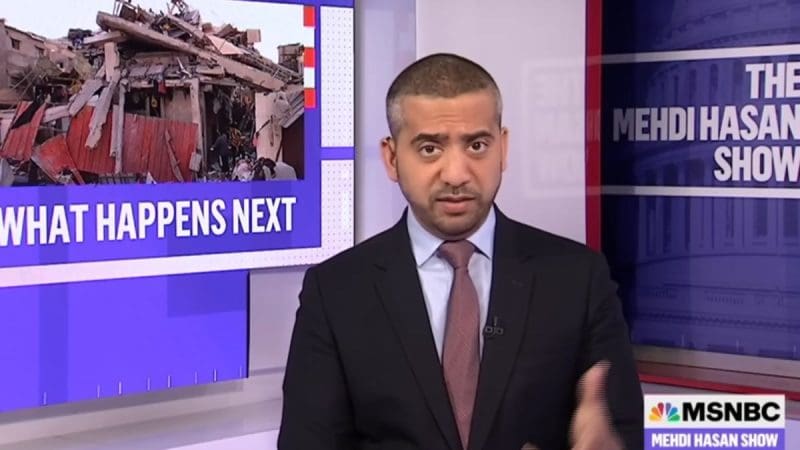
In a move that has sparked significant consternation and debate, MSNBC has announced the cancellation of Mehdi Hasan’s widely acclaimed show. This decision, coming amidst a tumultuous political landscape, has not only raised eyebrows but also elicited a strong backlash from a spectrum of viewers and media analysts.
Hasan, known for his penetrative journalism and forthright critique of global politics, has been a distinctive voice on the network, making this cancellation particularly noteworthy.
The Controversy Unfolds
The abrupt termination of Mehdi Hasan’s show has ignited a flurry of speculation and discontent, particularly among progressive circles. Hasan’s unflinching approach to sensitive topics, including his critical stance on Israel’s policies, has been suggested as a potential factor behind MSNBC’s decision. This speculation underscores a growing concern about the freedom of press and the influence of political and corporate interests on media narratives.
The Implications of Hasan’s Departure
Mehdi Hasan’s departure represents more than just the end of a show; it’s a significant shift in the media landscape. Hasan, with his unique blend of rigorous analysis and eloquent advocacy, has played a pivotal role in shaping discourse on critical issues. His absence from the airwaves raises questions about diversity of thought and the representation of alternative perspectives in mainstream media.
MSNBC’s Strategic Realignment
This development is part of a broader strategic realignment within MSNBC. The network is reportedly expanding Ayman Mohyeldin’s show to two hours, positioning Hasan as a fill-in host. This shift comes as MSNBC gears up for the 2024 election coverage, suggesting a recalibration of its programming strategy. However, the network’s move has not been without its detractors, who view it as a sidelining of a critical and respected journalistic voice.
Community and Industry Reaction
The reaction to MSNBC’s decision has been swift and vocal. Viewers and media pundits have taken to social media and other platforms to express their dismay and concern. The consensus among many is that Hasan’s show provided a necessary counterpoint to the often monolithic perspectives prevalent in mainstream news. The cancellation thus not only represents a loss for Hasan’s viewers but also for the broader media ecosystem which benefits from a plurality of voices.
Analyzing the Backlash
The backlash against MSNBC is not just about one show or one journalist. It’s a reflection of broader anxieties about media integrity and the role of journalism in democracy. In an era where media is increasingly polarized and influenced by powerful interests, Hasan’s show was seen as a beacon of critical, independent journalism. Its cancellation thus has implications that extend far beyond the immediate controversy.
Conclusion
The cancellation of Mehdi Hasan’s show by MSNBC is a development that resonates with significant implications for media freedom and diversity. As the network pivots to its new strategy in anticipation of the 2024 elections, the loss of Hasan’s voice on its platform is a moment of introspection for the industry and its consumers. In an age where the integrity of media is more crucial than ever, decisions such as these serve as a barometer of the health of our public discourse.
